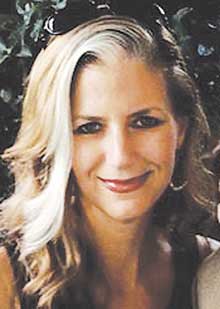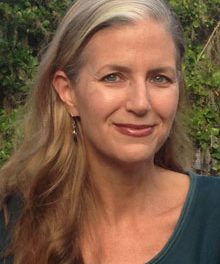
By Margaret Evans, Editor
I’m having trouble sleeping, y’all. Not falling asleep, mind you – just staying asleep. Almost every night for the past . . . gosh, it seems like a year but it’s probably more like two weeks . . . I’ve been waking up around 3 a.m. and staying that way. Awake. Utterly, terribly awake.
I’m told my cursed condition has many possible causes: the recent Blood Moon, Mercury in retrograde, advanced middle age . . . None of these things is under my control, and thankfully, each will pass. (Though I’ve heard old age is even worse than middle age for sleeping. Uh oh.)
Here’s the thing about being awake at 3 a.m.: Nobody else is. The world is very quiet at 3 a.m., which makes your brain seem very noisy. At 3 a.m., your worst self takes center stage, in all its grandiose, scenery-chewing glory – “I’m ready for my close-up, Mr. DeMille” – and you lie there in the dark, willing the curtain to fall, growing more desperate – and more awake – as the minutes tick by. Loudly.
Long ago, I invented a name for this period of unwelcome consciousness that sometimes occurs between 3 a.m. and the ringing of the alarm clock. I call it The Remorseful Hour. It’s the time when every mistake you’ve ever made comes back to haunt and harangue you with a merciless immediacy. That cruel remark you made to your little sister when you were 12 and she was 10 . . . that thank-you note you didn’t write 17 years ago . . . that cute, sweet boy you dumped on in college . . . that awful column you wish you’d never published . . . They all come raging back, screeching through your noggin like a pack of flying monkeys, reminding you that you are, indeed, the worst person who ever lived and, in fact, unworthy of sleep.
And it’s not just about remorse. For every regret that drag races through your mind at 3 a.m., a fear shows up to ride shotgun. Lately, ISIS and Ebola have been my primary mental marauders, along with a host of minor worries that seem downright major at this God-forsaken hour. Since I have to rise for good between 5:30 and 6 in order to get my kid fed, packed up, and in the car headed to school by the offensive hour of 7 a.m., the worst fear of all, at 3 a.m., is that I won’t go back to sleep. This fear is seldom unfounded.
One recent 3 a.m., instead of lying there with regretful anxiety running roughshod through my frontal lobe, I decided to do a little reading. (Reading can distract you from the flying monkeys, and occasionally even lulls you back to sleep – usually about 5 minutes before the alarm buzzes.) I curled up on the couch with my trusty Kindle Fire, and Googled ‘sleep,’ which brought me to an article on the Collective Evolution website called, “Your Ancestors Didn’t Sleep Like You – Are We Doing It Wrong?”
According to the article, “evidence continues to emerge, both scientific and historical, suggesting that the way in which the majority of us currently sleep may not actually be good for us. In 2001, historian Roger Ekirch of Virginia Tech published a paper that included over 15 years of research. It revealed an overwhelming amount of historical evidence that humans used to in fact sleep in two different chunks.”
Apparently, we didn’t always sleep for an average of 8 hours straight, but in two shorter periods throughout the night. All sleep would happen within a 12-hour time frame that started with 3 or 4 hours of sleep, followed by 3-ish hours of wakefulness, then another few hours of sleep ‘til the morning. People didn’t go out much at night – unless they were criminals, prostitutes, or drunkards – so the dark hours were mostly used for sleeping. This all began to change in the late 17th century, when Paris became the first city in the world to light its streets. Eventually, staying up at night became the social norm throughout Europe. When the Industrial Revolution came along, people became more conscious of time and efficiency, and our long-standing two-segment sleep pattern all but disappeared.
The article continues: “Ekirch believes that many modern day sleeping problems have roots in the human body’s natural preference for segmented sleep. He believes that our historical sleeping patterns could be the reason why many people suffer from a condition called ‘sleep maintenance insomnia,’ where individuals wake in the middle of the night and have trouble getting back to sleep. This type of condition first appeared at the end of the 19th century, approximately the same time segmented sleep began to die off.”
In the same article, psychologist Greg Jacobs agrees with the historian Ekirch. According to Jacobs, throughout most of evolution we slept a certain way; it’s part of our physiology. The idea that we have to sleep in one continuous block could actually be damaging, he says, “if it makes people who wake up at night anxious, as this anxiety can itself prohibit sleep and is likely to seep into waking life, too.”
Did somebody say “anxiety”? Yes! And don’t forget crankiness. Lots and lots of crankiness. Too many nights of too little sleep make Margaret a cranky girl.
But what’s to be done? Knowing that my 3 a.m. wakefulness – and subsequent crankiness – is a natural inheritance from my ancestors is comforting, I suppose, but not particularly helpful. I couldn’t embrace the two-chunk sleep method even if I wanted to. I’d have to get in bed every day at 5:30 p.m. Who would get dinner on the table? Clean up the kitchen? Nag my daughter about her homework? And when would I enjoy my glass (or two) of wine? Happy Hour would have to start around 2 p.m. and that would just be unseemly.
I know I’m not alone in my sleeplessness. Fellow sufferers have commiserated and offered advice, most of it involving pharmaceuticals. If things don’t get better soon, perhaps I’ll consider that option, but for now, I’m hoping to find a more organic solution. And until I do, I’m just going to embrace these waking hours as a “bonus” and attempt to use them for good.
According to the aforementioned historian, our forebears typically used their period of wakefulness between sleeps to meditate, read scripture, pray, and otherwise engage in spiritual practice. I think I’ll try that. I’ll just accept the fact that I will be awake for a time, and I’ll use that time to strengthen my spirit. I’ve always wanted – and certainly needed – more spiritual practice in my life. And I try. I really do. But reading scripture and praying and such? That stuff always puts me to sleep.
Hey, wait a minute . . .






